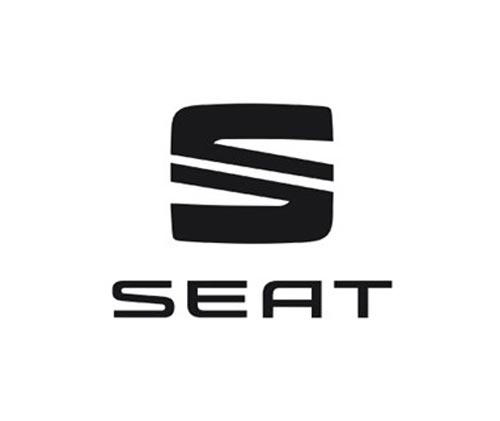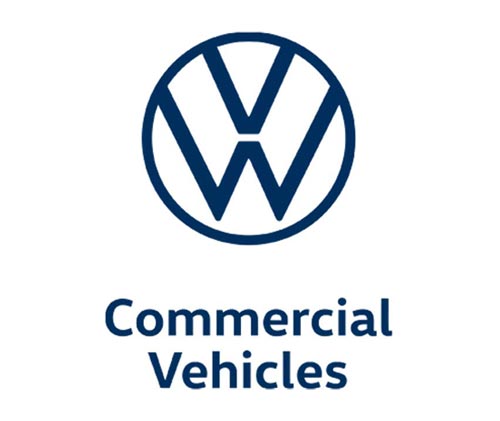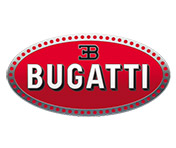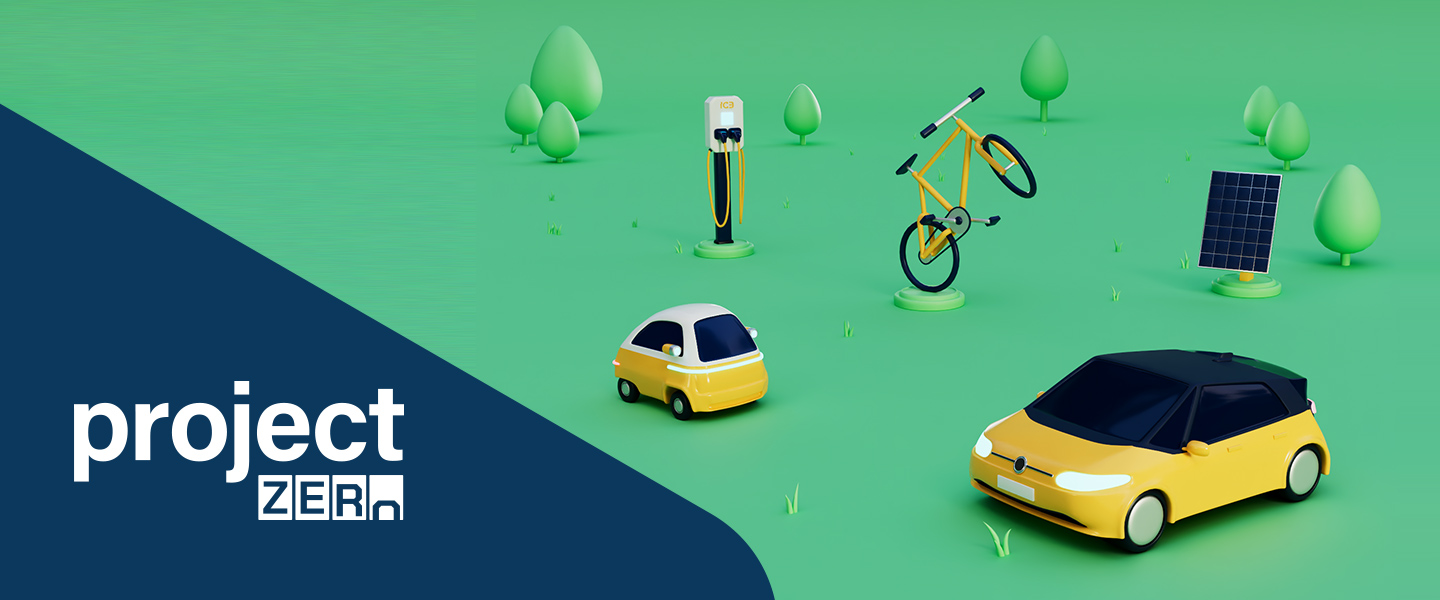
D’Ieteren has passed a key sustainability (ESG) milestone with its new rigorous non-financial reporting system that fully complies with the European Union’s stringent Green deal requirements. This is …
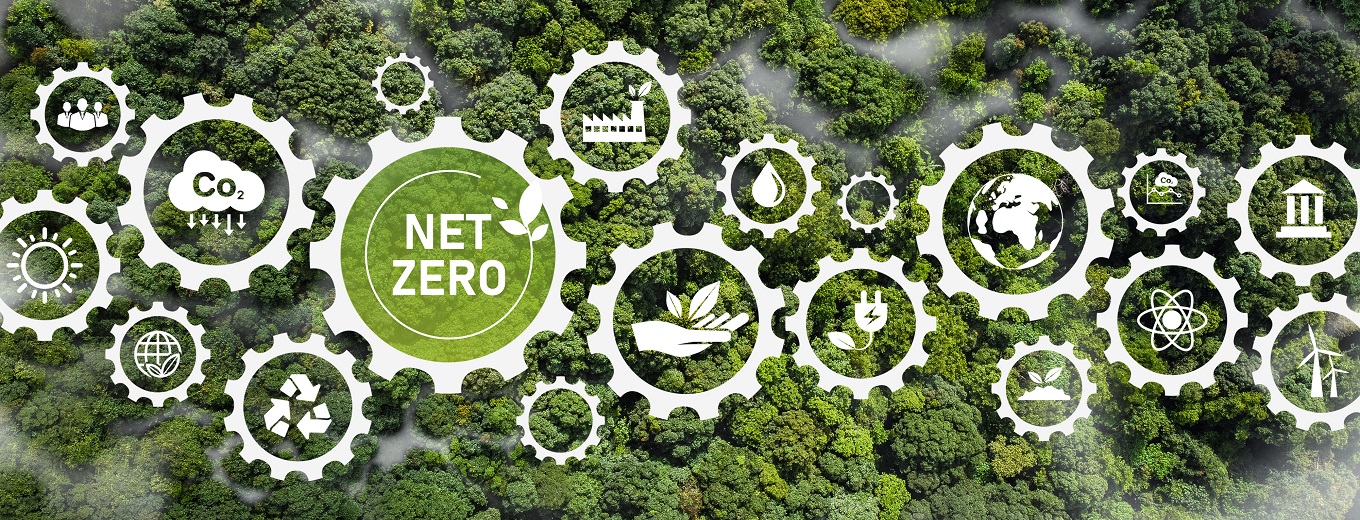
11.12.2024
D’Ieteren is proud to announce that the Science Based Targets (SBTi) initiative has officially approved its Net-Zero commitment by 2050 and its medium and long-term carbon reduction targets.
The company’s decarbonisation trajectory is therefore in line with the scientific criteria for achieving the climate objectives of the Paris Agreement. This ambitious trajectory is part of D’Ieteren’s global strategy, which aims to build smooth and sustainable mobility for all in Belgium.
Denis Gorteman, D’Ieteren CEO: "Mobility is at the heart of the economic and social challenges facing us and as a key player in Belgium, we also want to make it a lever for environmental issues. The state of the planet is critical and ignoring it is irresponsible. In recent years, we have expanded our portfolio of mobility solutions to support the transition to low-carbon mobility. Today, it is essential to accelerate this transformation and optimise resource management. While real progress has been made, the challenges remain significant but we are committed to taking them up."

D’Ieteren's Net-Zero trajectory
The objectives validated by the SBTi* for D’Ieteren and all its subsidiaries are as follows:
- By 2030, compared to 2023, reduce the company's direct and indirect emissions by 42%, mainly due to the energy consumed by its buildings and fleets of vehicles (scopes 1 and 2), as well as reduce the emissions mainly generated by the use of vehicles sold by 42% (scope 3 – cat 11).
- By 2050, compared to 2023, reduce the company's direct and indirect emissions by 90% (scopes 1 and 2), as well as emissions related to the production, use and end-of-life of products and services sold (scope 3 – cat 1, 11, 12). The 10% of residual emissions will be neutralised through carbon capture and storage technologies.
These ambitious objectives make it possible to put D’Ieteren on a Net-Zero trajectory that complies with SBTi standards. These standards aim to drastically reduce greenhouse gas emissions in accordance with scientific recommendations in order to limit global warming to 1.5°C compared to the pre-industrial period.
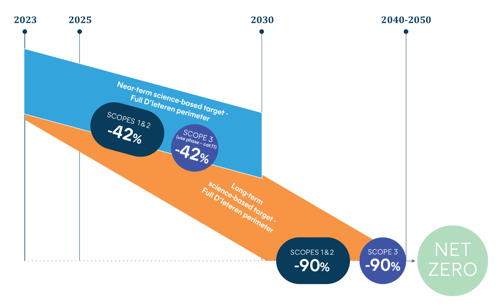
Project ZERO, D’Ieteren’s climate plan
To achieve its decarbonisation goals, D’Ieteren is committed to reducing its dependence on fossil fuels both in its operations and across its value chain, by focusing on renewable energy and low-carbon mobility solutions and by extending the life cycle of its products.
Electrification and the use of renewable energies are essential to drastically reduce CO2e emissions by 2030. D’Ieteren therefore aims to achieve massive electrification of its sales of new vehicles supplemented by a range of products and services for vehicle charging (EDI) and solar energy production (Go Solar).
At the same time, D’Ieteren aims to accelerate the development of its low-carbon activities in the cycling (Lucien, Joule), shared mobility (Poppy, Taxis Verts) and micromobility (Microlino) sectors in order to offer flexible and accessible transport solutions that meet specific urban mobility needs.
Information on D’Ieteren’s climate plan can be found here.
Catherine Vandepopeliere, Head of Sustainability: “D’Ieteren is firmly positioned as a key player in the transition to sustainable and low-carbon mobility. The approval of its Net-Zero trajectory by the Science Based Targets initiative (SBTi) demonstrates the strength and ambition of its climate strategy. By supporting this transition with investments in electrification, renewable energy and alternative solutions, D’Ieteren is paving the way for a more sustainable future and proving that tomorrow’s mobility can be smooth, sustainable and accessible to all."
*The target boundary includes land-related emissions and removals from bioenergy feedstocks.
About the SBTi. The Science Based Targets initiative (SBTi) is a collaboration between CDP, the United Nations Global Compact, the World Resources Institute (WRI) and the World Wide Fund for Nature (WWF). The initiative supports companies in setting greenhouse gas (GHG) emissions reductions targets in line with the best scientific data available and the objectives of the Paris Agreement.
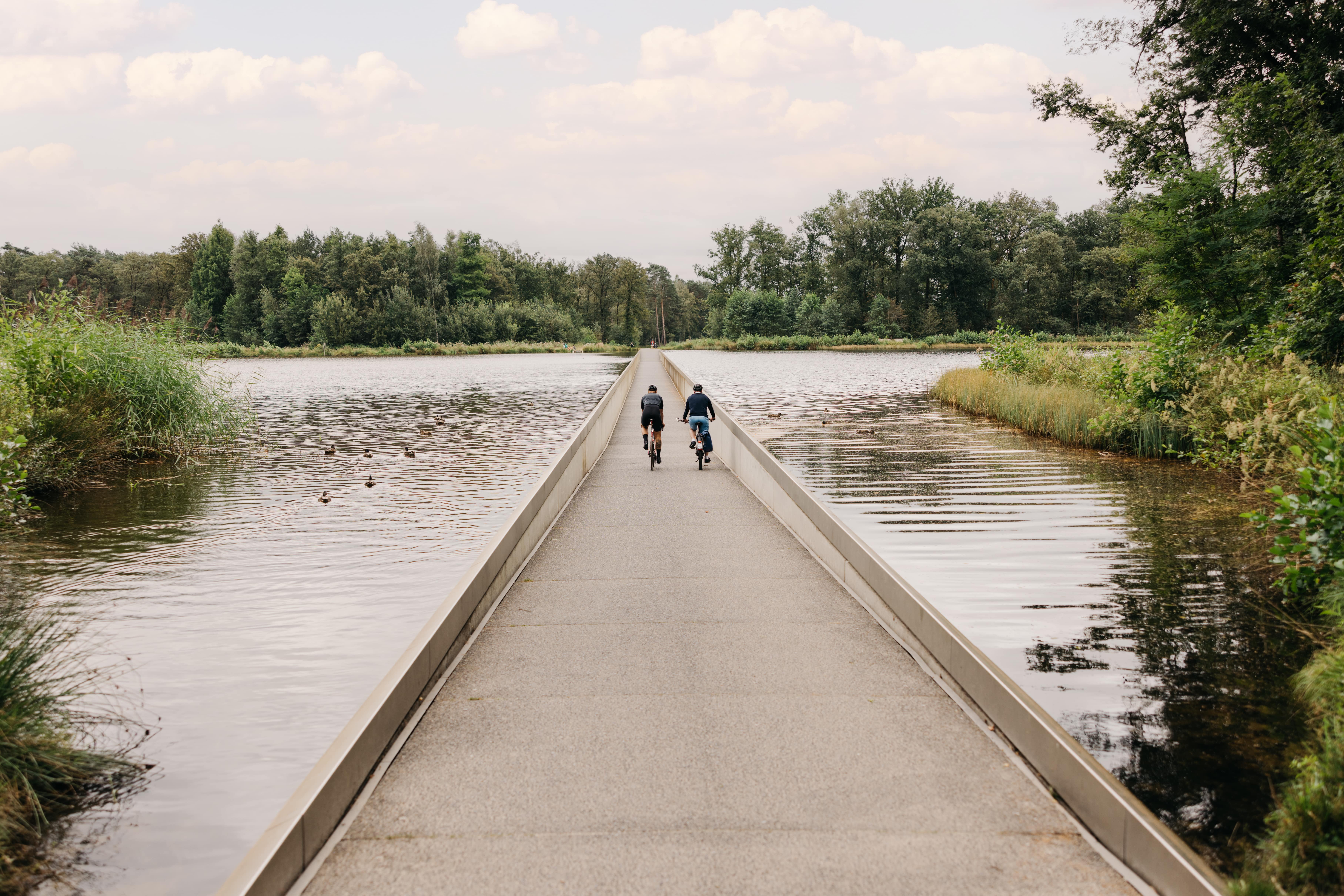
15.09.2024
Following the first Polaris survey on mobility in Belgium, published in 2021 and updated in 2023, we decided to update this survey again in 2024 in order to observe developments, discover (possibly new) trends and map out the changing usage habits of professional and private consumers. On this occasion, Denis Gorteman CEO met with 4 Belgian personalities to discuss their vision of mobility.
Our guests?
Discover them here!
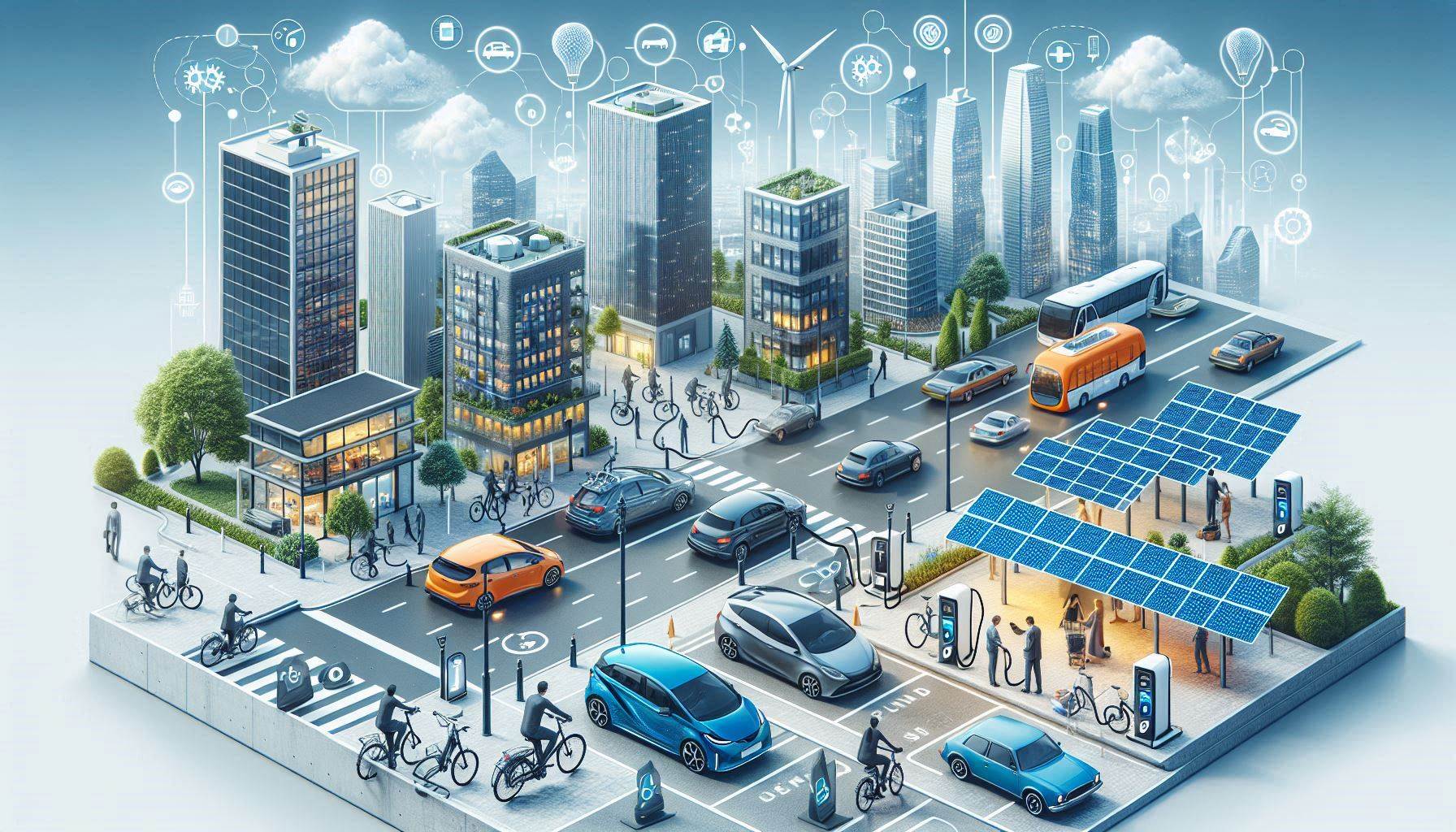
10.09.2024
A survey on the mobility behaviour of professional and private consumers
“D’Ieteren, moving people forward, no matter what moves you” takes on its full meaning when we see that D’Ieteren is a pioneer in the reinvention of mobility, which means we have a key role to play in making it as smooth and sustainable as possible for all. This is our whole purpose and what we have been working on for several years now.
Towards new challenges for the mobility of the future? Read on to discover the main findings, the current and future consumer usage habits and the widening gap between the vision of future electromobility for private customers and for professional customers in the new 2024 version of the Polaris survey:

30.01.2023
Just 5 years ago, D'Ieteren announced its ambition to be a key player in sustainable mobility in Belgium. Today, it’s a reality!
D'Ieteren is now able to offer a wide range of mobility solutions, combining traditional modes of transport with new possibilities. Convinced of our leading role in our markets, we must be a catalyst for the mobility transformation, which must stop being part of the problem and become a vector of sustainable solutions. This is what we have written in our manifesto, which we invite you to read.
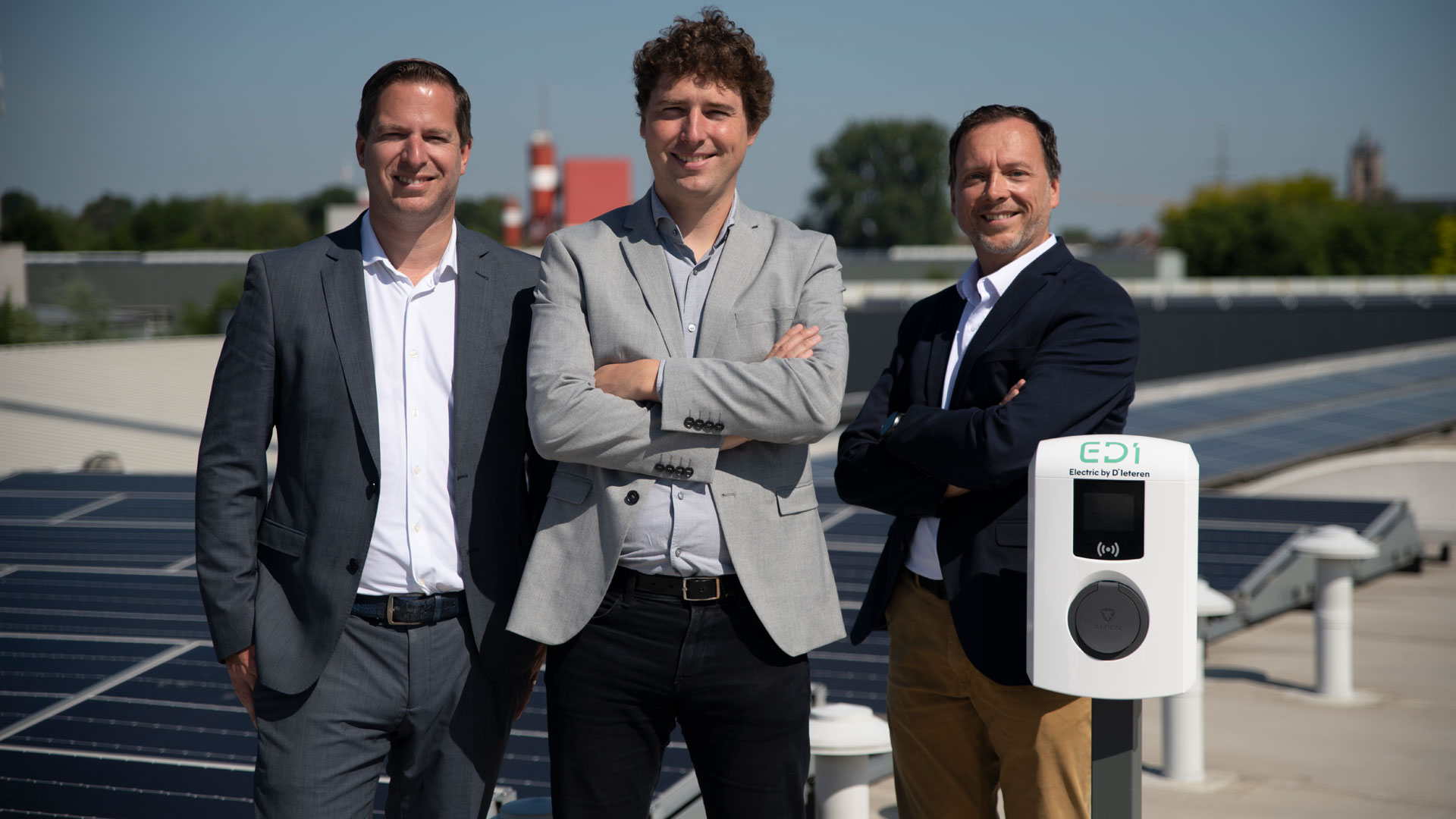
22.06.2022
The D'Ieteren subsidiary will now offer photovoltaic panels and batteries as well as charge points for electric vehicles to promote electromobility in Belgium.
Through its acquisition of Go-Solar, EDI, the leader in the sale and installation of charge points for electric vehicles in Belgium, will supplement its offer to motorists by proposing that they be both producers and consumers of green energy.
Go-Solar is a leading company in the installation of photovoltaic panels and batteries in Belgium, allowing its customers to optimise their consumption of the green energy they generate and consequently cut their electricity consumption costs.
Denis Gorteman, CEO of D’Ieteren: "EDI's acquisition of Go-Solar is a strategic operation that will simplify the customer experience by providing a complete offer and will therefore help promote electromobility in Belgium. It will help reduce the carbon footprint of mobility and dovetails with our mission to work towards fluid and sustainable mobility for everyone."
Founded in 2008, Go-Solar is a Belgian family business renowned for its expertise in the installation of photovoltaic panels and batteries. This integrated approach is a key success factor in a rapidly expanding market. The company, which is seeing double-digit growth, is mainly active in Flanders and aims to expand its activities throughout Belgium, more specifically by capitalising on the business potential offered by its merger with EDI.
By acquiring Go-Solar, EDI intends to consolidate its leadership position in its market, in line with its mission to facilitate electromobility in Belgium, while giving its customers an economic and ecological edge when it comes to their energy consumption.
Nicolas Paris, Managing Director at EDI: "Vehicles equipped with a charging socket are expected to account for half of all sales of new vehicles by 2025. By acquiring Go- Solar, we are striving to make life easier for our customers by offering them a complete electric ecosystem and by relying on Go-Solar's renowned expertise, the quality of its teams and the reliability of its installations."
Chris Poppe, Founder/Managing Director at Go-Solar: "We did not want to miss out on the opportunity to join forces with a strong partner who is amassing the tools it needs to promote electromobility. Combining our two activities as well as our strengths will allow us to make a positive contribution to overcoming the climate, energy and economic challenges we face. Given the entrepreneurial spirit and focus on quality that bind our two companies, the future looks promising."
About EDI
EDI, the Belgian market leader, provides a wide range of charging solutions, ranging from charging cables used in conventional power sockets to high-end charge points that automatically regulate charging speed according to available electrical power and rooftop photovoltaic generation. EDI's strength lies in supporting its customers across the board by deploying experienced teams, focusing on high-quality products and delivering a full range of services, including shared billing for electricity consumed for company vehicles, real-time optimisation of charging speed and access to a network of 250,000 public charging points in Europe.
More information (in French): EDI I Charge points for electric vehicles and plug-in hybrid electric vehicles
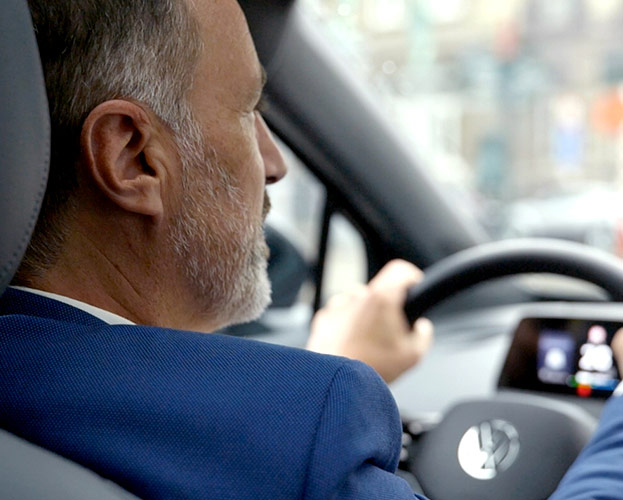
09.09.2021
- Earlier this year, D'Ieteren Automotive commissioned a major survey of 3,800 Belgian residents, 300 company managers, 17 experts and 8 working groups – all of whom were questioned about changing mobility habits.
- The findings of the survey, which we call Polaris Mobility, are now available to all mobility stakeholders free of charge.
- This study is just one of the initiatives D'Ieteren Automotive is taking to promote fluid and sustainable mobility for all.
As we all know, mobility is evolving rapidly. Not only are we seeing the advent of electric cars and multimodal platforms, but also the impact of both the pandemic and our business on the climate, as well as technological developments.
All these change and upheavals prompted us to survey users of multiple types of mobility and experts in analysing how we get around. Many private and professional users, of all ages and from all parts of the country, were asked about their habits and how they see mobility developing in the future.
With the data thus collected we were able to perform a detailed analysis of our current behaviours and how we intend to get around in the years ahead.
A few examples:
Unsurprisingly, respondents confirmed the declining but still essential role that cars will continue to play in their travel. While interest in multimodality is growing, the study indicates that it will supplement cars. The respondents said they prefer to own their own car rather than use car-sharing schemes.
Shared mobility initiatives on two or four wheels will continue to develop, but they will primarily target urban users who appreciate the flexibility offered by the system. According to Polaris, about 12% of us will be using these schemes by 2030.
Perhaps more surprisingly, many respondents believe that we will move around less in the future. They see fewer trips, more often being made by bicycle. One third of those questioned told us they are interested in cycling, especially with electric bicycles. Based on their responses, we expect 15% of journeys to be made on two wheels by 2030.
On the B2B front, the survey shows that stakeholders are enthusiastic about electric mobility as well as mobility packages for employees. This seems to confirm the idea that businesses will be the driving force behind change and the introduction of new technologies and new habits in the market.
In general, the freedom to have flexible mobility under their own control seems to be critically important to most participants. Businesses clearly have a far better detailed knowledge of costs and the impact of travel compared to individuals, for whom such knowledge is rather incomplete.
Polaris also reveals that, while respondents claim they are increasingly digital, 78% still prefer going to their dealership to buy their car. However, they are more likely to go there by bike, on foot or by public transport than before.
Link and access to the full details of the Polaris Mobility Survey:
The Polaris Mobility Survey, carried out in collaboration with Profacts and Deloitte, is available free of charge to all mobility stakeholders.
Polaris Mobility Survey
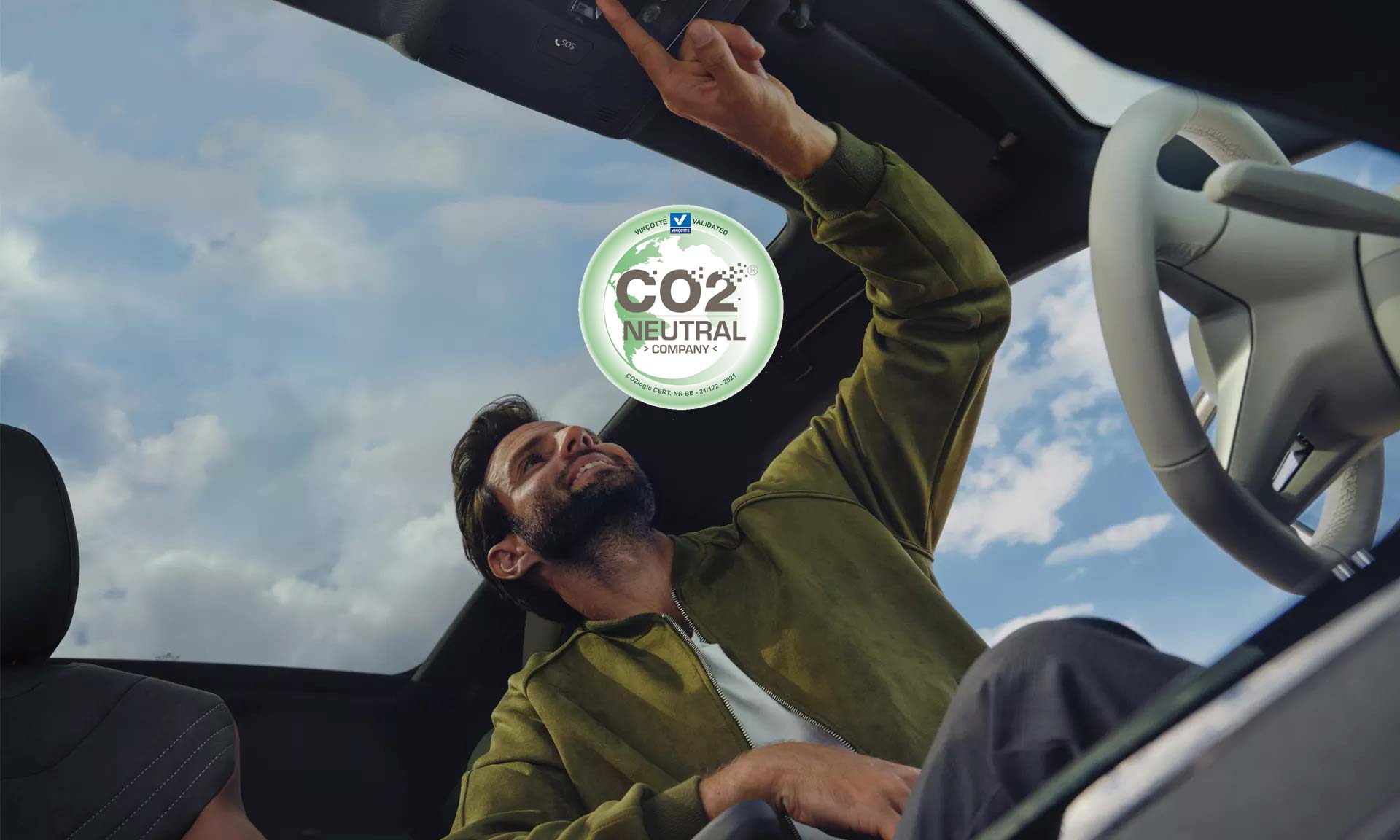
10.05.2021
Meanwhile, D'Ieteren offsets emissions and aims to go carbon-neutral.
The goal of reducing the company’s carbon footprint is one of the two flagship commitments in D'Ieteren's sustainability strategy, which is working towards developing sustainable and fluid mobility for all.
D'Ieteren aims to halve the carbon footprint of its business activities by 2025, taking concrete action involving its vehicle fleets, logistics and energy consumption. In addition to these campaigns, the company has begun offsetting its CO2 emissions and is now carbon neutral.
Denis Gorteman, CEO: "Our commitment to reduce our CO2 emissions via our stringent action plan is very ambitious, even exceeding the Paris Agreement objective of limiting the temperature rise to 1.5 °C. Despite an uncertain economic environment, we do not want to sidestep the challenges of social sustainability and are investing for the future. As the leader in our industry, we wish to extend our leadership position to the field of social responsibility."
D'Ieteren is also firmly committed to promoting equal opportunities and inclusion. Diversity is a factor in innovation, performance and quality of life within the company, which serves more than 1.2 million customers.
Where are we now?
D’Ieteren has been measuring its CO2 emissions and working to reduce them for more than 10 years now. However, in view of the climate emergency, the company decided to step up its ambitions.
In 2020, D'Ieteren reduced its CO2 emissions by 20% compared to 2019, the year used as the baseline for the 2025 carbon target.
This reduction is due, in part, to the lower volumes of new vehicles and spare parts delivered to dealerships and the increase in teleworking due to the health crisis.
The challenge facing D'Ieteren is to contain the growth of its emissions as the situation gradually returns to 'normal', while rapidly implementing high-impact and sustainable CO2 reduction actions to achieve the 2025 target.
Practical actions
The Group has been implementing practical initiatives since early 2021, while others are being analysed and/or developed.
Initiatives launched in the first half of 2021
- Exclusive use of green electricity, which will reduce emissions by around 1,000 tonnes of CO2.
- Accelerated implementation of the green mobility policy for staff. Moving beyond initiatives already launched to facilitate multimodality, promote carpooling and even contribute to the financing of electric bicycles, D'Ieteren is shifting into high gear to electrify its vehicle fleets and encourage staff to purchase electric or hybrid vehicles.
― In addition to equipping its sites with more charging points, D'Ieteren is installing standard charging points in the homes of those employees that have a company car.
― The charging points are being installed by its subsidiary EDI (Electric by D'Ieteren) which, in addition to supplying the charging point, enables users to use their recharging card to access the largest public recharging network in 25 European countries, while providing split billing services (i.e. re-invoicing the company for electricity consumed at home for recharging vehicles).
Encouraging structural teleworking, allowing those employees whose job so allows to work three days a week at home (instead of two, as was the case before the health crisis). To encourage teleworking, D'Ieteren provides flat-rate allowances to cover Internet service, electricity and/or heating costs and equips its staff with appropriate office and IT equipment. These measures come on top of training and advice on remote team management, work-life balance and ergonomics, as well as a growing number of communication campaigns.
Overhauling the emergency spare parts delivery system for dealers based on more efficient order planning, making it possible to reduce the number of trips made without compromising customer service.
Other projects to reduce CO2 emissions are under way.
Since the aim of reducing emissions by 2025 is ambitious, a great many projects will be implemented in the coming months and years.
These include reducing surface area occupied, especially for retail activities, and redeveloping sites, such as the D'Ieteren distribution centre in Erps-Kwerps, with two objectives in mind:
- maximising the energy efficiency of buildings;
- introducing new ways of working that promote both teleworking and on-site meetings for collaborative work.
To develop an increasingly green staff mobility policy, D'Ieteren has also decided to join forces with Mob Box – the Group subsidiary specialising in supporting companies by providing mobility consultancy – to conduct detailed research into its employees' mobility habits and then take appropriate measures to reduce CO2 emissions while optimising employee satisfaction.
Using green electricity to recharge employees’ vehicles at home and while teleworking is another project currently under study.
Using green electricity to recharge employees’ vehicles at home and while teleworking is another project currently under study.
These initiatives supplement a range of pro-environment actions that have been pursued for several years now.
Since 2006, D'Ieteren Group – via its estate subsidiary D'Ieteren Immo – has been pursuing a broad programme of actions to reduce the carbon footprint of its real estate assets by reducing energy consumption (monitoring facilities and optimising their performance), generating green power on its sites and storing the energy it produces itself.
Offsetting emissions that are currently unavoidable
In addition to actions taken to reduce the carbon emissions of its business activities, D'Ieteren takes responsibility for that part of its climate impact that cannot be reduced and is investing in offsetting emissions produced in 2020 via VCS-certified carbon credit projects. In partnership with CO2Logic, D'Ieteren supports two types of projects, one allowing the absorption of CO2 emissions by supporting a conservation project, the other aiming to prevent CO2 emissions by generating renewable energy.
Guatemala rainforest conservation project
The Sierra del Lacandón national park in Guatemala is home to stunning biodiversity, but every year the park loses its forest cover due to poor agricultural practices, fires caused by burning techniques and illegal deforestation. Thanks to D'Ieteren's support for the project, it is possible to implement effective measures to tackle each of these challenges. As a result, it is helping to protect nearly 2,600 hectares of primary forest, i.e. nearly 2.3 million trees which will continue to play the vital role of absorbing and sequestering CO2, while also protecting many endangered species.
Renewable energy development project in India
India's power grid is heavily dependent on power plants that burn fossil fuels, such as coal, and therefore emit huge amounts of CO2. As a result, the Indian energy sector contributes a great deal to climate change and air quality issues. The project D'Ieteren is supporting aims to develop a network of wind turbines that will supply the power grid with clean, renewable energy while encouraging the transition to a low-carbon economy. Thanks to this contribution it is already possible to guarantee the production of nearly 780 GWh of renewable energy and provide sustainable electricity for more than 720,000 Indian families.
Antoine Geerinckx, Founder CO2Logic: "We award CO2-Neutral Certification to organisations that calculate, reduce and offset their impact on the climate. Since 2015, this label has been validated by Vinçotte – an independent third-party certifying body – with a view to avoiding meaningless environmental declarations. The CO2-Neutral label is not only beneficial for our planet, but also ensures that labelled companies receive recognition for the real efforts they are making on behalf of the environment. Well done, D’Ieteren!"
Denis Gorteman, CEO D'Ieteren: "A company's social responsibility is only consistent and effective if, firstly, it is part of the company's strategy, and secondly, it involves its staff in its proactive approach. At D'Ieteren, we are all working towards the mobility of the future by deploying our skills and know-how to serve our customers and rolling out services that promote a sustainable lifestyle."
Thanks to the initiatives we are taking to reduce and offset our CO2 emissions, D'Ieteren is helping to achieve the United Nations' three sustainable development goals.
Our sustainability strategy
Mobility is not only our business, but also a social issue. That means we are particularly well placed to deploy our expertise and know-how to benefit our customers, partners, employees and society in general. We aim to be the benchmark and a source of inspiration when it comes to sustainable mobility. Being responsible also means promoting sustainable growth for all and minimising our environmental impact. Our two priority commitments dovetail perfectly with this global approach.
Our approach
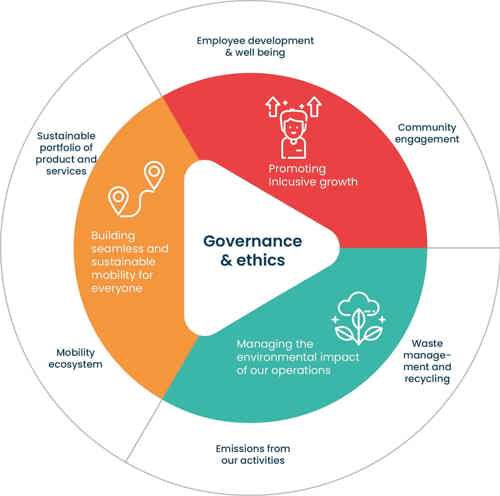 Our priority commitments:
Our priority commitments:
- Maximally reduce our CO2 emissions
- Promote equal opportunities and inclusion
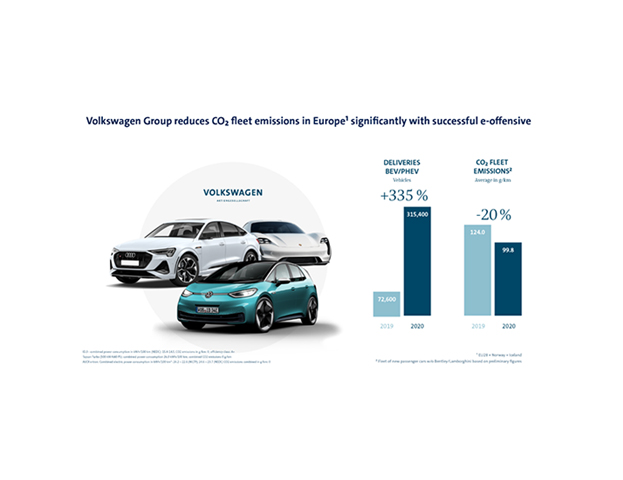
24.01.2021
Wolfsburg, January 21, 2021 – The Volkswagen Group’s e-offensive is gain-ing traction: deliveries of electric models in the EU including the UK, Norway and Iceland increased more than fourfold in the year now ended to a total of 315,400 electric vehicles (2019: 72,600). The proportion of battery electric vehicles (BEVs) and plug-in-hybrids (PHEVs) in the total deliveries rose to 9.7 percent (2019: 1.7 percent). The Volkswagen Group is thus the clear mar-ket leader in the all-electric segment in Western Europe, accounting for a share of around 25 percent (2019: 14 percent). The main drivers of this de-velopment were the Volkswagen Passenger Cars and Audi brands, which overfulfilled their CO2 fleet targets largely due to the successful start-up of their ID.31 and e-tron electric models. Based on preliminary figures, the Volkswagen Group thus reduced the average CO2 emissions of its new pas-senger car fleet in the EU by around 20 percent compared with 2019 to 99.8 g/km in 2020. The emissions of Bentley and Lamborghini are measured individually, which is why they are not included in this figure. In anticipa-tion of narrowly missing the target for the CO2 pool established jointly with other manufacturers by around 0.5 g/km, the Group had recognized provi-sions at an early stage to avoid any impact on fourth-quarter earnings.
Herbert Diess, CEO of the Volkswagen Group: “We are making good progress on the road to becoming a CO2-neutral company. We significantly reduced the CO2 emissions of our new vehicle fleet in the EU. The Volkswagen and Audi brands in particular have made a major con-tribution to achieving this with their e-offensive. We narrowly missed the fleet target for 2020, thwarted by the Covid-19 pandemic. Along with Volkswagen Passenger Cars and Audi, CUPRA and ŠKODA are now bringing out further attractive electric models. This will allow us to achieve our fleet target this year.”
Rebecca Harms, member of the independent Volkswagen Sustainability Council: “Despite very ambitious efforts in electrification, it has not been possible to meet the set fleet target in full. But Volkswagen is clearly well on its way. Work has to continue systematically to bring about the drive transformation and meet climate and sustainability targets. The key to suc-cess will be to give a greater role to smaller, efficient and affordable models in the electrifi-cation rollout.”
Volkswagen Passenger Cars was the first Group brand to deliver all-electric vehicles based on the Modular Electric Drive Toolkit (MEB) to customers in 2020. Launched in September, the ID.3 has enjoyed great demand from customers, with 56,500 vehicles already handed over by the end of the year. A total of around 212,000 electric Volkswagen vehicles were transferred to customers in the past year, including around 134,000 BEVs. This means that the brand sig-nificantly overfulfilled its CO2 fleet target and made a considerable positive contribution to the Group.
The Audi brand also came within its CO2 fleet target in 2020 and contributed positively to the Group. The brand continues its transformation into a provider of sustainable premium mo-bility; last year it was by far the largest manufacturer of electric vehicles among the three German premium brands. The successful Audi e-tron model (incl. Audi e-tron Sportback) rec-orded a significant increase in demand in the past year, with year-on-year growth of 79.5 percent (47,300 vehicles). Worldwide, the Audi e-tron is the best-selling electric vehicle among German premium manufacturers.
The Volkswagen Group will systematically step up its e-offensive in 2021 with a large num-ber of new all-electric vehicles based on the Modular Electric Drive Toolkit (MEB). Audi will start this year with the Q4 e-tron2 and Q4 e-tron Sportback2, CUPRA will launch the el-Born2 and ŠKODA will bring the Enyaq iV3 to its customers. Volkswagen Passenger Cars will launch the ID.44 in in a number of additional markets and present a new all-electric model.
The Volkswagen Group, together with other manufacturers, has launched a CO2 pool for pas-senger car registrations in the European Union. Based on preliminary figures, this pool achieved average CO2 emissions of 99.3 g/km, thus narrowly missing its target by around 0.5 g/km. The final confirmation by the EU Commission is to follow at a later date.
Volkswagen is the first automotive group to commit to the Paris Climate Agreement and intends to become climate-neutral by 2050. The Group aims to become the leading provider of electric vehicles worldwide by 2025. Until then, around €35 billion of investments are therefore planned in e-mobility and another amount of around €11 billion in the hybridiza-tion of the model portfolio. The Group is planning to sell around 26 million battery electric vehicles by 2030. Around 19 million of these vehicles will be based on the Modular Electric Drive Toolkit (MEB), while most of the remaining 7 million vehicles will be based on the High Performance Platform (PPE). The Group expects around 7 million hybrid vehicles in the same period. These plans do not yet incorporate potential future requirements under the EU’s Green Deal.
1) ID.3 – power consumption in kWh/100 km (NEDC): 15.4 – 13.5 (combined), combined CO2 emissions in g/km: 0; efficiency class: A+
2) The vehicle is not yet offered for sale in the EU.
3) Enyaq iV: power consumption in kWh/100 km (NEDC): 16.0 – 14.4 (combined), combined CO2 emissions in g/km: 0; efficiency class: A+
4) ID.4 – power consumption in kWh/100 km (NEDC): 16.9 – 16.2 (combined), combined CO2 emissions in g/km: 0; efficiency class: A+

14.01.2021
On January 14, our partner Skipr took home a gold medal during the The European Startup Prizes for Mobility. Out of 550 starting companies, Skipr was one of the 4 winners and their team of 35 innovators could not be happier!
Skipr’s model is an alternative to conservative corporate mobility and provides companies with an easy solution to lower their CO2-output, while giving their employees full flexibility as to mobility.
“The road to shifting employee mobility to sustainable solutions is still long but we are now a step closer to showing that economy and ecology should go hand in hand”, says Skipr co-founder and CEO, Mathieu de Lophem.

01.01.2021
The business activities of D'Ieteren SA/NV were taken over by a new legal entity, D'Ieteren Automotive SA/NV, on 1 January 2021. Consequently, on that date D'Ieteren Automotive SA/NV became the controller of your personal data in strict compliance with the rules on the protection of privacy.
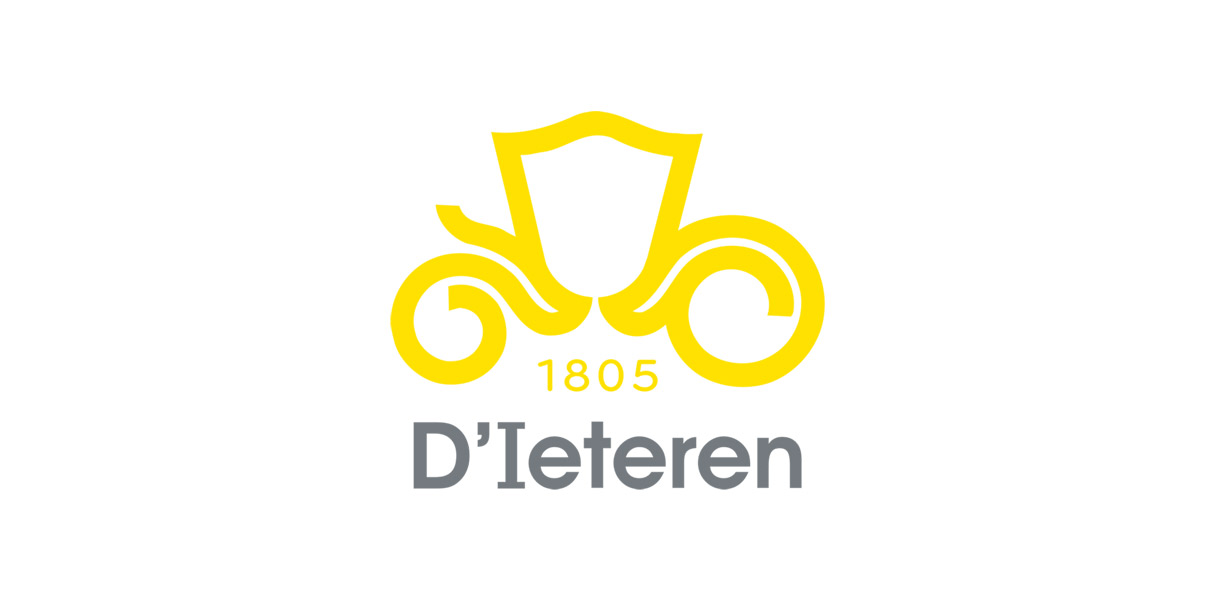
11.12.2020
It is with great sadness that the D'Ieteren Group and its Board of Directors announce that their Honorary Chairman, Baron Roland D'Ieteren, has passed away at the age of 78.
A graduate of Solvay business school and an INSEAD alumnus, Roland D'Ieteren began his career at Volkswagen in Mexico before joining the management of the family company in 1973. For decades he devoted himself to pursuing the work of five generations, first as Chairman and Chief Executive Officer, and later as chairman of the Board. Roland D’Ieteren relentlessly fosters entrepreneurship, initiates the development of new business areas and works on the group’s international expansion. His employees and friends testify to his extraordinary team spirit and admire the family values which he naturally embodies in daily life.
Since handing over the reins in 2017 to the following generation, Roland D'Ieteren remained in high esteem in the Group. Discreet and generous by nature, he devoted most of his time to his passion for the automotive world and to his family and friends.
Nicolas D'Ieteren, Chairman of the Board of Directors and son of the deceased testifies: “La Maison D'Ieteren is in mourning. It has lost its patriarch. He devoted his entire life and all his energy to the family business. A highly enthusiastic man and an extraordinary father has just left us. He will be sorely missed.”
All his employees pay him the tribute he deserves.
Browse the latest news about our constantly evolving brands.


